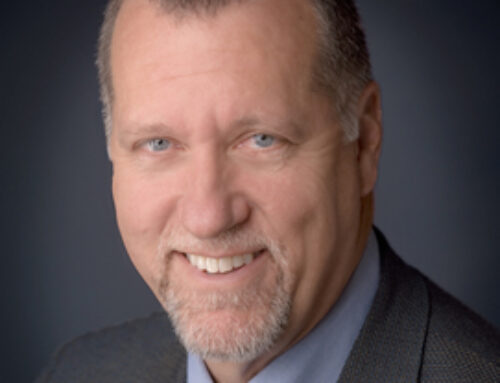Published in the March 15 – 28, 2017 issue of Morgan Hill Life

Edward R. Murrow
Edward R. Murrow, the legend of broadcast reporting, and his CBS news program, “See It Now,” on March 9, 1954 examined for an audience of television viewers Sen. Joseph McCarthy’s record and anti-communist methods. That historic broadcast was a high point of American journalism.
It took a respected member of the news media to put a spotlight on the abuse of power and false accusations made by a demagogue political leader whose bombastic personality and outrageous communication during the Red Scare captured the imagination of millions of Americans. McCarthy used the legitimate fears of a foreign Communist enemy and linked them with the growing xenophobia and cultural resentments of citizens fearful of the changing character of the post-World War II nation.
Murrow’s expose on McCarthy was a national story that impacted all Americans. And then there are the local news reporters who investigate the corruption of those who hold positions of power in their own communities. Most notably 15 years ago the Boston Globe published a series of stories written by the team of “Spotlight” reporters who spent thousands of hours investigating the city’s sexual abuse scandal, where for decades clergy molested children, and the resulting cover-up.
It took courage for the newspaper to publish such a critical story in such a predominantly Catholic city. But its readers supported the Globe’s decision. That led other journalists to do their own investigations that exposed hundreds of abusive priests around the world. In fact, Gilroy Life editor Robert Airoldi wrote several stories of abuse by a priest in Fremont, part of the Oakland Diocese.
Unfortunately, human nature being what it is, on occasion men and women who are trusted by the public to take on a position of authority — whether it be in politics, religion, finance or other areas — are not able or willing to check their impulse to take advantage of that power. The men who wrote the ground rules for our nation’s government understood that fact. That’s why they placed in the Constitution protection for a free press to responsibly serve the public benefit by informing citizens about abuses of power.
One of America’s founders, Benjamin Franklin, began his career as a highly successful publisher as well as scientist, so he no doubt understood the need for truth-based reporting for the education of the public.
The relationship between elected officials and the press can often be a particularly adversarial one. And rightfully so. If it gets too cozy, there’s a danger of the press becoming a vehicle of propaganda. The warning of history of Nazi Germany in the 1930s and 1940s shows where this might lead in democracy’s demise.
The United States now faces a crisis of confidence in the democratic process of government. America’s president is attempting to erode the credibility of a free press in reporting on his administration and the missteps it has taken in its first month of executive office management of the nation.
In his tweets, Mr. Trump described certain national news sources as purveyors of “fake news” and has even called them “enemies of the American people.” It’s an ad hominem trick often used by politicians to discredit those messengers who provide the public with information not favorable to their image or decisions.
The media itself should not be above criticism. Reporters often make mistakes. And on occasions that are embarrassing to the industry, rogue reporters do fabricate news for sensational or other purposes. But by and large, journalists do the best job they can with limited time and other resources in getting the story right.
As a reminder of what a free press in America can achieve for liberty and democracy, let’s leave the last words of our editorial to Mr. Murrow who finished his famous broadcast on Mr. McCarthy with these thoughts:
“We will not walk in fear, one of another. We will not be driven by fear into an age of unreason, if we dig deep in our history and our doctrine, and remember that we are not descended from fearful men — not from men who feared to write, to speak, to associate and to defend causes that were, for the moment, unpopular.
“This is no time for men who oppose Senator McCarthy’s methods to keep silent, or for those who approve. We can deny our heritage and our history, but we cannot escape responsibility for the result. There is no way for a citizen of a republic to abdicate his responsibilities. As a nation we have come into our full inheritance at a tender age. We proclaim ourselves, as indeed we are, the defenders of freedom, wherever it continues to exist in the world, but we cannot defend freedom abroad by deserting it at home.
“The actions of the junior Senator from Wisconsin have caused alarm and dismay amongst our allies abroad, and given considerable comfort to our enemies. And whose fault is that? Not really his. He didn’t create this situation of fear; he merely exploited it — and rather successfully. Cassius was right. ‘The fault, dear Brutus, is not in our stars, but in ourselves.’ Good night, and good luck.”






